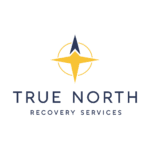Balancing Pain Management and Opioid Addiction
The intersection of pain management and opioid addiction is a complex, sensitive area in healthcare. Opioids are powerful painkillers, but their potential for addiction has contributed to a crisis that affects millions. For those in recovery, finding effective pain management without risking relapse is challenging. This guide explores alternative pain solutions, innovative therapies, and how facilities like True North Recovery Services are helping individuals navigate this difficult path.
Understanding Opioid Addiction
Opioids are prescribed for severe pain relief, covering medications like oxycodone, hydrocodone, and morphine. While effective, their use can lead to dependency, particularly with long-term prescriptions. The brain develops a tolerance to opioids, requiring increased doses for the same effect, often leading to addiction. The Centers for Disease Control and Prevention (CDC) highlights the connection between prescription rates and the rise in opioid addiction, making this an urgent public health concern.
How Opioid Addiction Develops
Opioid addiction often begins with prescriptions for pain. Physical dependence can form quickly, especially if higher doses are used, eventually leading to addiction. The addictive nature of opioids can cause severe withdrawal symptoms, making it challenging to stop. This dependency has driven many to misuse these drugs, contributing to the opioid crisis.
The Dilemma: Managing Pain Without Relapse
For those in recovery from opioid addiction, managing pain is a delicate balance. Conventional opioid-based pain relief can be risky, so alternative methods must be considered. Here are some common challenges faced:
- Risk of Relapse: Using opioids, even for pain, can trigger relapse in those recovering from addiction.
- Tolerance and Pain Sensitivity: Prolonged opioid use can lead to tolerance, requiring higher doses for relief and often causing opioid-induced hyperalgesia, an increased sensitivity to pain.
- Healthcare Barriers: Stigma and misunderstanding about addiction can lead healthcare providers to under-treat pain, leaving patients feeling neglected.
Alternatives to Opioids for Pain Management
There are numerous non-opioid methods for pain relief that are effective and have a lower risk of dependence. Here are some of the most promising alternatives:
Non-Opioid Medications
- NSAIDs (Nonsteroidal Anti-Inflammatory Drugs): Medications like ibuprofen and naproxen are effective for inflammation-related pain.
- Antidepressants and Anticonvulsants: Some medications used for depression, like duloxetine, and epilepsy drugs, such as gabapentin, help relieve neuropathic pain.
Physical and Psychological Therapies
- Physical Therapy: Tailored exercises improve movement, flexibility, and strength, addressing the physical causes of pain.
- Cognitive Behavioral Therapy (CBT): CBT is a well-researched approach that helps patients alter pain-related thoughts and behaviors, improving pain management outcomes.
- Mindfulness and Meditation: These practices have been shown to reduce pain intensity, improving patients’ overall well-being.
Integrative Therapies
- Acupuncture: This ancient therapy can relieve pain by stimulating specific points on the body.
- Chiropractic Care: Manual adjustments can help alleviate musculoskeletal pain, particularly for back and neck issues.
Medication-Assisted Treatment (MAT) for Opioid Use Disorder
Medication-Assisted Treatment (MAT) combines medications with counseling and behavioral therapies to support individuals in recovery from opioid addiction. When patients experience pain, MAT medications like buprenorphine and methadone also offer pain relief, reducing the risk of relapse.
Common MAT Medications
- Methadone: This long-acting opioid agonist is used to reduce cravings and withdrawal symptoms.
- Buprenorphine: This partial opioid agonist can be prescribed more flexibly in office settings, making it accessible for patients.
- Naltrexone: Naltrexone blocks the effects of opioids, helping prevent relapse.
Behavioral Therapies to Support Pain Management
Behavioral therapies are essential for addressing pain without opioids. They offer a holistic approach, helping patients develop coping skills and resilience.
Cognitive Behavioral Therapy (CBT)
CBT helps patients identify negative thought patterns about pain and shift them toward constructive, realistic perspectives. By focusing on improving mental resilience, CBT reduces pain perception and improves daily functioning.
Mindfulness-Oriented Recovery Enhancement (MORE)
MORE combines mindfulness, CBT, and positive psychology to treat pain and addiction. Studies suggest that MORE can reduce opioid misuse and pain severity, making it a valuable tool in pain management.
A Multidisciplinary Approach to Pain Management
A comprehensive pain management plan involves a team of healthcare providers, including medical doctors, mental health professionals, physical therapists, and support groups. This approach ensures patients receive holistic care addressing both their physical and emotional needs.
Components of a Multidisciplinary Pain Management Approach
- Medical Professionals: Doctors, nurses, and specialists offer medical oversight and appropriate pain relief.
- Mental Health Support: Counselors and therapists help manage psychological pain components.
- Physical Therapy: Provides targeted exercises to enhance physical health and alleviate pain.
- Peer Support: Community groups create a sense of connection, offering encouragement through shared experiences.
True North Recovery Services: Holistic Support for Opioid Addiction
True North Recovery Services specializes in helping individuals recover from opioid addiction through a comprehensive, personalized approach. Here’s how they support addiction recovery while addressing pain management needs:
Specialized Treatment Plans
True North Recovery Services understands that every individual’s journey is unique, requiring customized treatment plans. They consider each client’s background, addiction history, and pain management needs to create an integrated approach that promotes healing and growth.
Evidence-Based Therapies
True North combines evidence-based practices such as Cognitive Behavioral Therapy (CBT), Mindfulness-Based Relapse Prevention, and Medication-Assisted Treatment (MAT) to provide well-rounded care. By integrating these therapies, they address both the physical and mental aspects of addiction and pain management.
Supportive Environment for Recovery
True North offers a compassionate, stigma-free environment that allows clients to heal and regain control of their lives. Support groups and one-on-one counseling create a network of encouragement, reducing the risk of relapse and empowering individuals to pursue a healthy, fulfilling life.
Building a Sustainable Pain Management Plan
Pain management for individuals recovering from opioid addiction requires a sustainable approach that emphasizes long-term solutions and relapse prevention. Here are some strategies to maintain a balanced pain management routine:
- Regular Check-Ins with Healthcare Providers: Frequent visits help adjust pain management strategies as needed.
- Developing Coping Skills: Techniques such as deep breathing, progressive muscle relaxation, and visualization can reduce stress and alleviate pain without medication.
- Physical Activity: Gentle exercises like walking, stretching, and yoga strengthen the body and help control pain.
- Engaging in Supportive Communities: Peer support groups and community engagement provide emotional reinforcement, reducing the risk of relapse.
Toward a Healthier Future
Managing pain without opioids is challenging, especially for those recovering from opioid addiction. However, with the right combination of treatments, such as behavioral therapies, alternative pain relief methods, and the support of facilities like True North Recovery Services, sustainable recovery is achievable. True North Recovery Services provides a holistic approach that includes personalized care, evidence-based therapies, and a supportive community to help individuals regain control of their lives and maintain a pain-free, addiction-free future.
If you or a loved one is struggling with opioid addiction and pain management, reach out to True North Recovery Services for compassionate, professional support tailored to your needs.


